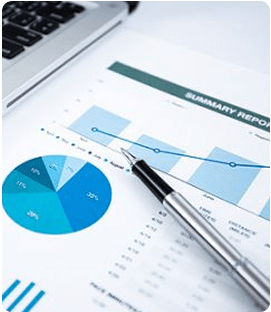Enterprise Systems Assessment
Home - Technology & Business Assessments - Enterprise Systems Assessment
Enterprise Systems Assessment
Enterprise systems integrate a number of different applications, protocols and formats. In doing so, an enterprise system allows companies to integrate business processes, such as sales, deliveries and accounts receivable, by sharing information across business functions and employee hierarchies. These systems can replace multiple independent systems that may or may not interact with other systems and that process data to support particular business functions or processes.


The Enterprise Resource Planning (ERP) systems integrate software applications, such as purchasing, finance and inventory management. Within an ERP system, the integrated software modules, such as sales, general ledger, accounts payable, fixed assets, accounts receivable, inventory and quality management communicate and share data. Each of these modules consists of multiple applications that execute end-to-end business processes. For example, the sales module includes the applications necessary to create and manage sales contracts, sales orders, sales invoices and sales order pricing. ERP applications support not only various operational and administrative tasks, such as the creation of an account payable or a time sheet, they may also be customized to support a number of different industries, including Life Sciences, High Tech, Oil and Gas, Retail and Banking.
Customer Relationship Management (CRM) systems were developed to address the need to raise a sales department’s productivity and provide an effective way to increase sales. With CRM functions, such as sales opportunity management, a company learns more about its customers’ needs and buying behavior and combines this information with market information to enhance the quality of the company’s marketing plans and sales forecasts.
Other attributes of the CRM system include integration with other systems and accessibility via mobile devices, allowing employees to update and compare data and to access information from any client site or other location. Equally important, CRM supports mass e-mail communications and automates the sales process workflow to improve employee productivity. In short, today’s CRM systems have capabilities to let you interact with your prospects and customers at every stage of the sales funnel.
Supply Chain Management (SCM) is the broad range of activities required to plan, control and execute a product's flow, from acquiring raw materials and production through distribution to the final customer, in the most streamlined and cost-effective way possible. A supply chain is the collection of people, tasks, equipment, data and other resources required to produce and move products from a vendor to a customer. Supply Chain Management (SCM) refers to the management of supply chain activities in an effective and efficient way to provide a company with a strategic advantage.
These activities may include product development, material sourcing, production and logistics as well as the information systems that coordinate these activities. Information flows allow supply chain partners to coordinate their strategic and operational plans as well as the day-to-day flow of goods and materials through the supply chain. The physical flows include the manufacture, transport and storage of goods or materials.
Human capital management (HCM) is a set of practices related to people resource management. These practices are focused on the organizational need to provide specific competencies and are implemented in three categories: workforce acquisition, workforce management and workforce optimization. Human Capital Management software is also referred to as a Human Resource Management System (HRMS) or Human Resource Information System (HRIS).
